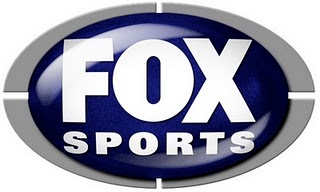
Stop me if you've heard this one before: a late-to-the-party TV network comes in with a strategy that defies past ways of doing business, shakes up the establishment and ultimately proves to be a viable competitor. Fox has done this at least twice, with the rise of their basic network in the late 1980s and early 1990s and the more recent surge to prominence of Fox News, and they're hoping the same aggressive, unconventional playbook will pay off in the sports world with the planned conversion of Speed and Fuel into all-sports channels dubbed Fox Sports 1 and 2. Whether their strategy works or not, it represents an unprecedented gamble and one with remarkably high stakes.
Of course, the dream of challenging ESPN for cable sports dominance is not a new one. Many have tried and failed before, and other competitors (CBS and NBC) already have a head start on Fox with their current cable networks. What sets the Fox plan apart is the scale of its ambition, though. The company's decision to launch two networks at once is a huge gamble in and of itself, but when you throw in that they're also asking for a massive increase in subscriber fees (from $0.22 for Speed to $0.90-$1 for Fox Sports 1 according to Reuters), it's clear they're looking to be a legitimate challenger to ESPN. That's a notable difference from CBS and NBC, as key network executives with both have repeatedly said they're not trying to take on the Worldwide Leader directly at the moment.
Something else that sets the Fox plan apart is where they're starting from. While they're late to the game in terms of getting an all-sports cable network off the ground, they're ahead of NBC and CBS on several critical fronts. Most importantly, there's distribution: Speed is already in 87 million homes, which would seem to give them an edge over both NBC and CBS. That distribution may change significantly depending on how willing providers are to accept the subscriber fee increase Fox is proposing, but it's a great starting point. Almost as crucially, though, Fox already has an impressive array of content lined up for the new channel, including MLB, Pac 12 football, soccer, MMA and NASCAR. A key problem CBS and NBC have faced with their cable offerings thus far is getting in-demand live sports content; NBC's key cable property is the NHL, which has drawn strong ratings thus far this season but hurt the network's other content with its half-year lockout, while CBS hasn't been able to draw too many top-tier live events at all. Fox already has deals in place that will let them transfer some content from FX and regional networks to the new Fox Sports 1 and 2, so they may have a stronger array of live sports content than their competitors despite their late launch.
This is a familiar blueprint for Fox. The network's no stranger to entering crowded arenas, but it's always done so with a brand that's rather different from what's already there. For the basic network, that involved taking chances on things that didn't seem to fit elsewhere on TV (The Simpsons and The X-Files are just a few of the many examples); for Fox News, it was about delivering news and commentary with a certain political slant that wasn't prominent on other news channels. Similarly, Fox's sports plan isn't to start small and build their way up like NBC or CBS (or The Big Ten Network, or the NFL Network), but rather to jump in with both feet, providing a strong array of live content and having two channels to spread it across but demanding subscribers pony up much more for the new channels. That makes it an extremely ambitious gamble, but one that could pay off.
While there are numerous factors in favour of this plan, it comes with challenges too. On the bright side, it's in-demand live sports events that really have the most value to broadcasters (thanks to being DVR-proof) and drive viewers to a network (see the incredibly low ratings for NBCSN's studio programming), and Fox already has plenty of those lined up. The company's preexisting distribution levels and previous experience cracking crowded markets should also help. However, that doesn't make it a guaranteed success. For one thing, rights fees are generally skyrocketing (and will likely continue to do so with how crowded the sports marketplace is becoming), and there has to be some point where networks are paying more for sports content than what they can actually recoup. For another thing, it's going to be interesting to see how the new national channels fit with Fox's regional sports networks; it's already been noted that Fox Sports One can air more games from MLB teams with Fox RSNs, but that those games will be blacked out on the RSNs, which may help the national channel's business but hurt the regional one's bottom line. Fox now has a lot of irons in the fire in a very crowded sports market, and finding good programming for all of them may prove challenging. It will also be notable to see how CBS, NBC and even ESPN respond to Fox entering the cable sports network game. Regardless of whether this pays off for Fox, though, it's certainly going to have a large impact on the sports media landscape.






Comments are closed.